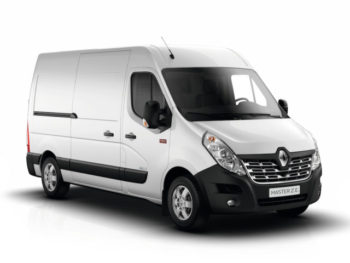The UK’s new light commercial vehicle (LCV) market recorded a 1.3% decline in 2018 but remained ahead of industry forecasts.

Latest figures released today by the Society of Motor Manufacturers and Traders (SMMT) show that a total of 357,325 LCVs were registered last year, marking the fourth best year on record and beating its October forecast of a 2.8% decline compared to 2017.
The biggest decline was in the small (sub-2.0t) van sector, which fell 14.7% while medium-sized vans (2.0-2.5t) were down 7.4%. Increases were seen from the pickup sector (up 4.3%) and 4×4 (up 303.4%) models, equating to 3,548 more of them on the road compared with the previous year. Larger vans (2.5-3.5t) matched their 2017 performance with 225,891 registered, a 0% change on last year.
Mike Hawes, SMMT chief executive, said: “This sector is a key indicator of business confidence in the UK, and operators need stability to renew their fleets. December’s performance was worrying, as was the overall drop in fleet purchases. Business confidence depends on government providing the right conditions, which first and foremost means taking a ‘No Deal’ Brexit off the table. We have a strong and competitive commercial vehicle market in the UK, one that can flourish in the right economic climate.”
Commenting on the figures, Russell Adams, commercial vehicle manager at Lex Autolease, added: “While it was a year of ups and downs, the light commercial vehicle market remained strong in 2018, closely matching the number of new registrations in 2017. Despite economic uncertainty, key sectors such as online retail and new build housing are continuing to grow and will fuel the continued uptake of commercial vehicles this year.
“Overall, van operators delivering goods and services need vehicles that are reliable, safe and as environmentally-friendly as possible. Those that have reached the end of their optimum working life can cost businesses as much as £500 per day when they’re off the road due to maintenance.
“The introduction of the Ultra Low Emission Zone in April 2019 is likely to act as an added incentive for businesses to upgrade their commercial vehicle fleets. Recent reports suggest that as many as 80% of vans on UK roads do not meet its minimum requirements.”

